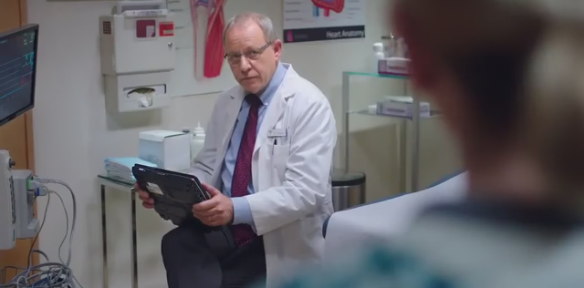Patient experience and reputation management now priorities for healthcare facilities
Laura Markowski used to worry every time a text alerted her that a patient had posted a negative review online of a doctor at her health-care system.
She’s in charge of “reputation management” at a group of hospitals and clinics in Virginia, and it’s her job to monitor complaints about rudeness, long waits, lack of face time with a doctor or something more serious.
But after several months of reviewing comments in real time on nearly a dozen Web sites, including Healthgrades.com, ZocDoc.com and Google Plus, as well as Facebook and Twitter, she’s calmer.
Most reviews have been “one-offs for different physicians,” she said, not focused on just one doctor or group practice that would raise a red flag.
Markowski is part of a new and urgent effort by hospitals and health systems to track and control their online reputations. As out-of-pocket costs for health care have risen, people are increasingly shopping for their medical care and comparing reviews. And younger consumers who have grown up on Yelp and Rate My Professors expect the same seamless, digital experience with health care that they have used in other aspects of their lives.
https://www.youtube.com/watch?v=ShILNHgnEjU
Patient satisfaction, long ignored by the health-care industry, is a strategic priority for another simple reason: It’s playing a more important role in determining how the federal government pays hospitals. In the last three years the government has been taking into account patient satisfaction data when determining how much to reimburse hospitals for Medicare patients.
But putting hospitals and doctors into the online rating world is fraught with possible problems. For one, patients and doctors have widely differing expectations.
When patients are asked to rate how doctor quality should be measured, clinical outcomes, such as getting cured of a disease, rarely come up, said Lisa Suennen, who advises health-care companies. Patients talk about whether a doctor or nurse was kind to them, or whether their experience was fast and convenient. It’s assumed that the doctor is going to treat their illness or condition.
Physicians, on the other hand, go straight to the clinical. The cancer is gone. Or the person can walk again. “They don’t even talk about the other stuff,” Suennen said. The two groups “are really disconnected.”
Physicians are not eager to be rated like restaurants. It’s hard for them to wrap their minds around the process, because taking care of patients is exceptionally complex, said Adrienne Boissy, the chief experience officer at the Cleveland Clinic.
“We don’t have consumers, we have patients,” she said. “Health care isn’t necessarily like shopping at Target.”
And some experts fear that the focus is more on burnishing the online reputations of doctors and hospitals than improving delivery of care.

